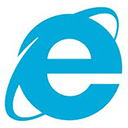Category: Web Developing
Microsoft to Open Source Edge’s and IE’s JavaScript Engine
 Say what?
Say what?
During the JSConf conference, Microsoft has announced that they will be open sourcing Charka, the JavaScript engine behind Edge and Internet Explorer.
Starting in January, 2016, users will be able to explore Chakra on GitHub, which will be dubbed “ChakraCore”. Why named it like that? Well, while the software giant will indeed open source the whole JavaScript engine, the are some differences between the two: ChakraCore lacks the “glue” between JavaScript engine and the browser’s HTML engine as well as “glue” between Universal Windows Platform and the JavaScript engine. Chakra also includes COM Diagnostic APIs that won’t be open sourced as well. However, that does not seem like a loss.
Continue Reading
23 X Times More Performance: Google, Microsoft, Mozilla & Others Join Forces
 Will co-develop a new binary format.
Will co-develop a new binary format.
It’s nice to see tech giants that are usually competing with one another coming together to work on something that will benefit users all over the globe. The most recent example comes from a new announcement, which details the forthcoming partnership between Mozilla, Microsoft, WebKit engineers and others.
What is it all about? As you might know, when it comes to executing JavaScript files, browsers simply download them from a server, compile them using their own JavaScript engine and then execute. How exactly is this a problem? It is not but there is a ton of improvements that developers can make to speed everything up (such as Mozilla’s ASM.JS, Google’s NativeClient or Microsoft’s TypeScript). However, a newly joined “alliance” aims to make a new binary format called WebAssembly, which should merge all vendor’s efforts into a single compilation target.
Continue Reading
Microsoft Details Edge Site Compatibility Improvements
 If you are a web developer, then dealing with multiple web browsers and rendering engines is something that you have been accustomed to. However, sometimes supporting legacy web browser versions might not only slow down your site but also impact other user’s experience (assuming you decide not to implement something because it does not work on the older versions of IE).
If you are a web developer, then dealing with multiple web browsers and rendering engines is something that you have been accustomed to. However, sometimes supporting legacy web browser versions might not only slow down your site but also impact other user’s experience (assuming you decide not to implement something because it does not work on the older versions of IE).
In any case, today Microsoft has shared more details about the different implementations that Edge utilizes to render everything properly.
In one example it was shown how using an incorrect charset or malformed refresh equiv (assuming it was a mistake by the developer) will ruin the web site, at least in some way.
Continue Reading
Microsoft Details Edge / IE11 Browser Developer Tools
 Here is what’s new for the network tool.
Here is what’s new for the network tool.
Developers, rejoice as the updated F12 Edge developer tools are here and can be tested by anyone running the latest build of Windows 10 or Internet Explorer 11.
As there are tons of new features and improvements, the software giant has decided to reveal them on a post by post basis, separating each dev tools category and the changes that were made.
So what did they reveal today? All about the network tool! There are simply too many improvements to list here but just to name a few: a new design, summary view, new toolbar options and so much more.
Continue Reading
Watch Build 2015 Here (Live Stream)
 And take a look at the list of Spartan related sessions.
And take a look at the list of Spartan related sessions.
If you are eager to find out what’s new in Project Spartan (as well as in other, Microsoft related products), then good news, the software giant will be streaming its Build 2015 conference live and you can watch it here!
When does it start? In 8 hours, and the timer is also available on the very same page so you will know the exact time in your country.
As far as specific, Spartan sessions go:
Continue Reading
Get Ready For The Project Spartan Web Summit
 Tons of sessions planned.
Tons of sessions planned.
Good news for everyone interested in the Microsoft’s upcoming web browser, Project Spartan. Thanks to the recently revealed info, it appears that the software giant will be holding a Web Summit in the Mountain’s View Building One (1065 La Avenida Mountain View, CA 94043).
Want even more good news? The registration is completely free and you are welcome to come. While a full list of session schedule was not yet revealed, we do know that there are dozens of them planned, including:
Continue Reading
Video: An Early Demo Of WebGL 2.0
 No full backwards compatibility for you.
No full backwards compatibility for you.
As Mozilla Foundation announced the availability of original WebGL (which was based on OpenGL ES 2.0) back in 2011 and then a 1.0.2 update two years later, the development has shifted to WebGL 2 (2013) and now it looks like all companies involved are ready to share some of the progress they have made in the last year or so.
So what exactly does the WebGL 2 have to offer? According to the recently revealed preview, the new graphics library is now based on the OpenGL ES 3.0 API and aims to raise many restrictions that were present in WebGL 1 (such as ability to use more render textures at the same time), developer controlled access to antialiasing, multiple render targets and other goodies.
Continue Reading
Video: Internet Explorer, A Break From The Past
 In a newly published post, the IE Team has revealed the steps they took to modernize its rendering engine (aka split it from the original Trident).
In a newly published post, the IE Team has revealed the steps they took to modernize its rendering engine (aka split it from the original Trident).
That‘s why Spartan is said to be more compatible than IE has ever been, especially due to a new web approach. Instead of analyzing the top 9000 sites that are responsible for around 88% of all web traffic (like Microsoft did in the past), they actually got to the root cause of compatibility issues and looked for patterns of trillions of urls instead.
Continue Reading
Spartan To Remove The 300ms Delay, Pointer Events Become W3C Recommendation
 Recently, Microsoft has announced a couple new things, first of all, their Pointer Events model has now been accepted by W3C and became a recommended standard, which means that other browser vendors should be implementing it in the near future, hopefully.
Recently, Microsoft has announced a couple new things, first of all, their Pointer Events model has now been accepted by W3C and became a recommended standard, which means that other browser vendors should be implementing it in the near future, hopefully.
In addition to that, there have been changes in the new rendering engine that is set to power Spartan. Due to the double tap issue (where a browser must pause for 300ms to see if there will be another one (assuming users want to zoom)), there comes a delay. While there are many workarounds (even for IE10), they are not ideal.
Continue Reading
HTTP/2 Has Been Finalized
 And boy did we have to wait.
And boy did we have to wait.
Back in 1999, the IETF and W3C have finalized the HTTP/1.1 protocol and now, 16 years later, it looks like the IETF HTTP Working Group has finally announced the work on HTTP/2 is now complete and it’s on the way to be published as a standard.
Why is HTTP/2 such a big deal? Well, as you might expect from 16 years of progress, it does bring faster page load times, longer lived connections, ability to deliver tons of requests at the same time thanks to the multiplexing feature, which means that the rest of the page load won’t be blocked by some of the heavier items.
Continue Reading



